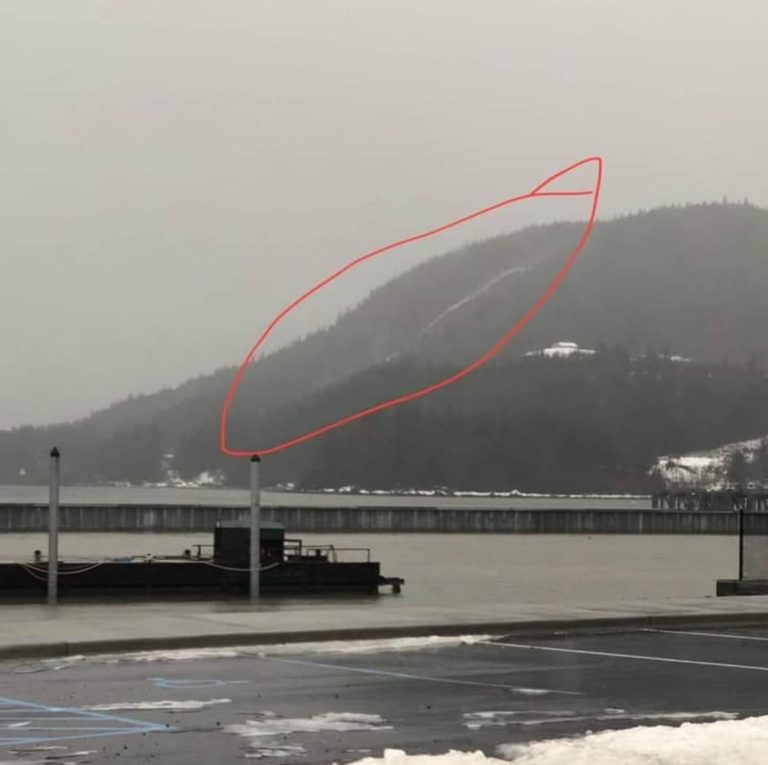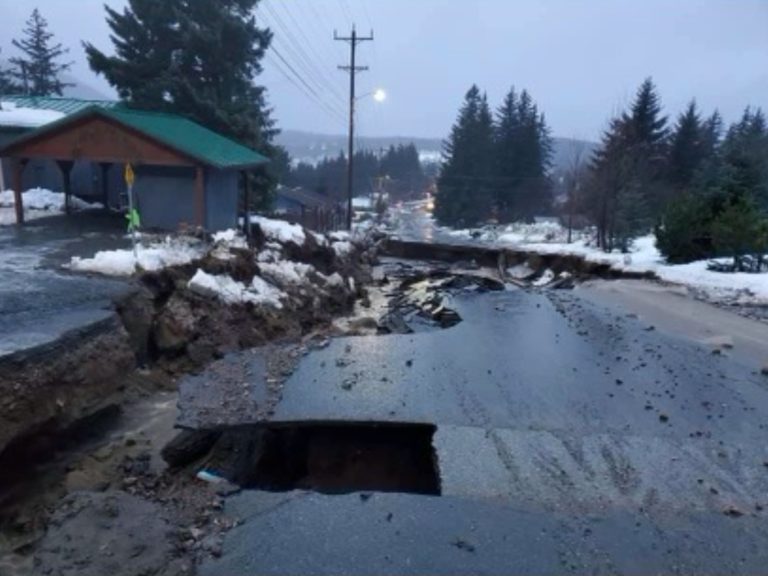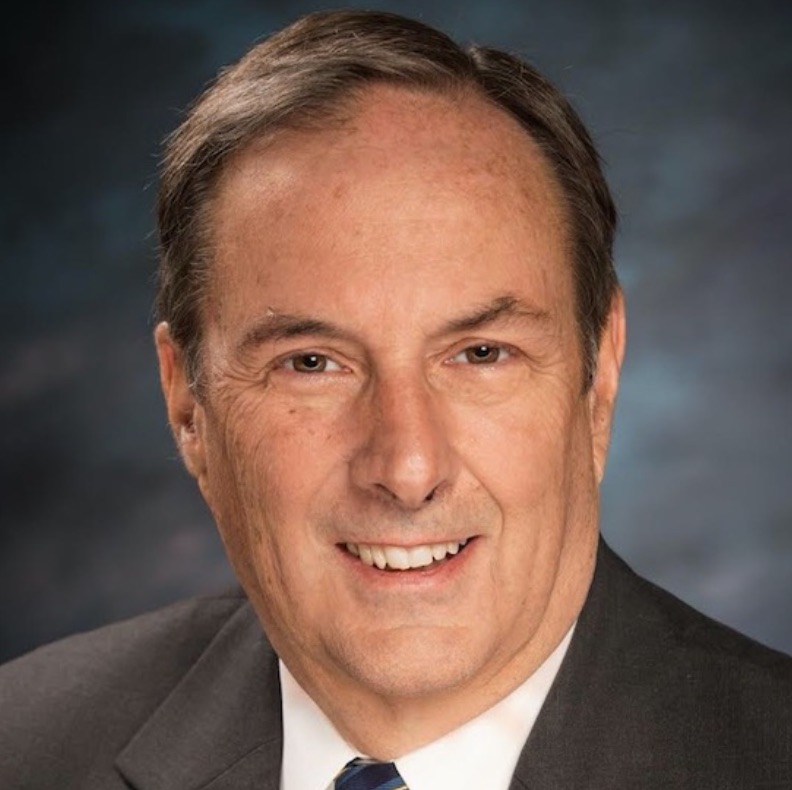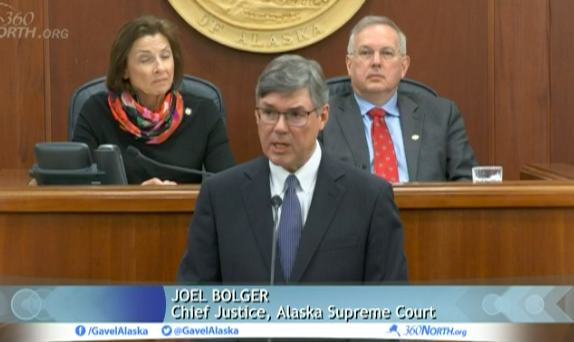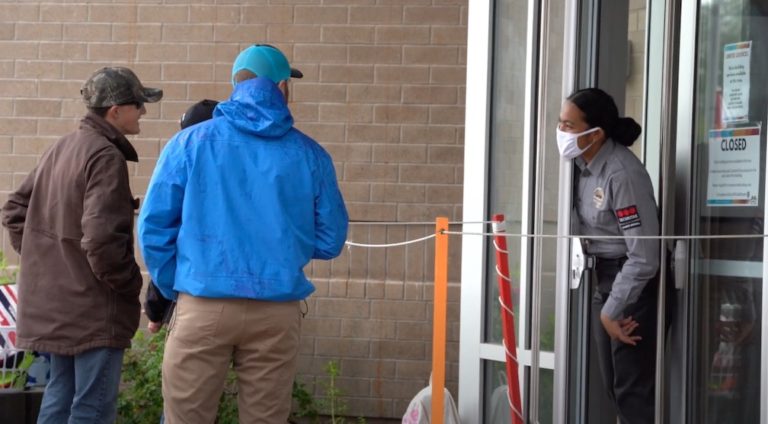Juneau Municipal government has released its list of CARES Act grants that it has awarded to artists, and it includes funding for online drag shows and drag queen classes. The total going to artists in Juneau is about $300,000.
Indeed, one of the grants has gone to the drag queen husband-partner of the City’s own finance director, Jeff Rogers. Gigi Monroe’s real name is James Hoagland, but the award evidently goes to his stage name. Details on the grants follow:
Drag Classes, a series of 4 virtual workshops, will be instructed by Monroe, pictured above from his Facebook page, for an award of $1,400.
“Drag Live”, two virtual shows produced, directed, hosted, and performed by Monroe, with performances by Shirley Wood, Lamia Lexicon, Lituya Hart Monroe, Dear Evan Handsome, Hoe-Say Queervo, Luna, Tyquan, Miss Guise, #Bob, Diamond de la Ghetto, Luke the Duke of Bell, Ryder Strong, Stevie Smalls, Roman Wilde, Blake Slate, for $9,965.
Other art projects funded by CARES Act money include:
Animation for the Juneau Commission on Sustainability by Sarah Asper Smith and Pat Race for $12,075.
Two paintings by Constance Baltuck for $5,000.
Digital illustrations, by Christine Carpenter, $8,780.
Regalia Basket by Della Cheney for $7,500.
“DZOOM – Lingít Language Learning and Revitalization in the time of COVID and beyond,” paintings by Barbara Craver, for $6,225.
Paintings by Crystal Cudworth for $2,665.
A coloring book for adults, by Kelsey Erickson-Kizer, for $5,000.
Sustainability promotional project, coordinated by Anjuli Grantham, Brian Wallace and Christine Carpenter, $12,075.
Online Live Music for Gallery Walk by Erin and Andrew Heist, $800.
Weaving: “Ancestral Indigenous Protectors”, woven by Lily Hope, for $13,814.
“Persevering through Covid”, Live Event, directed by Leslie Ishii, engaging 10 local storytellers and five theater technicians, for $10,134.
“Hidden Art/Hidden Messages” created by Rachael “Rachet Constructs” Juzeler, for $16,000.
Online Water Color Classes, by Hollis Kitchin for $4,300.
“Art and Safety Masks,” by Christine “Tide Watcher” Kleinhenz, and manufactured at Capital Copy, for $10,589.
Wooden Paddle, by David “Lou” Logan, for $800.
“Meditations” and “Views from a Distance”, a series of paintings by MK MacNaughton, for $11,260.
“One Square Mile” documentation of Covid-19 developed by Louise Manewall, with Larry West and Abel Ryan, for $10,550.
“Covid, Chaos, and String Theory”, a series of four paintings by Pua Maunu, $2,600.
Mental Wellness Zoom Painting classes, Find Your Fire Art Studio (Melissa McCormick), for $1,850.
Covid Quilt created by Mary McEwen, for $2,800.
Children’s coloring book by Mary McEwen, for $4,756.
Covid portrait painted by Louise Miller, for $1,920.
A 20-foot canoe, created by Robert Mills, with Brian Crapo, for $37,250.
Photographic portraits of Covid healthcare workers by Marc Mintz, for $3,900.
“Stories of Elders during Covid”, by Planet Alaska (Vivian Mork) working with four elders, for $10,000.
“Solace” modern dance, choreographed and danced by Anouk Otsea, music composed by Robert Newman, and videography and editing by Ryan Cortez, for $14,000.
“Virtual Strings and Stories,” by Linda Rosenthal, for $8,625.
“Recognizable Changes,” bentwood box by Abel Ryan, for $3,500.
“Animal Silhouettes” with messages of encouragement created by Aakatchaq Schaeffer, for $6,490.
“A Firefighter’s Holiday Tradition lives on”, a documentary film by Alaska In Motion (Madison Beau Sylte) with Kristan “Kris Kross Creatives” Barrill, for $3,900.
Covid Mask Scraps Quilt by Deborah Tempel, for $6,000.
“Gu Nu Ku” contemporary dance film choreographed and danced by Marissa Truitt, with Sydney Truitt and Austin Edwards, for $4,750.
“From Juneau With Love” a virtual two-hour performance produced by Taylor Vidic and Kelsey Riker with Annie Bartholemew, Cameron Brocket, Serena Drazkowski, Brita Fagerstrom, Michaela Goade, Jennifer Gross, Ryan Hicks, George Kuhar, Erika Lee, Taylour Marie, Tahir McInnis, Joseline Miles, Mercedes Munoz, Rochelle Smallwood, Chris Talley, Salissa Thole, Erika Tripp, Stewart Wood, Queens (Wendy Byrnes, Marian Call, Elizabeth Ekins, Allison Holtkamp, Rasha McChesney, Kristina Paulick, Cate Ross, Jessica Skiba), with videography and photography by Sydney Akagi, and with a graphic artist, and a stage manager, for $17,450.
Painting by Liyuan Zhang, for $2,000.
All of the physical artworks will be displayed in the Juneau Arts and Humanities website and eventually will be placed around town in vacant storefronts, no later than Dec. 30.
The Juneau Arts and Humanities building is now being used as a shelter for homeless, and many businesses in downtown Juneau have closed, so their storefront windows are available.
The City and Borough of Juneau Assembly allocated $300,000 of its CARES Act money for artists, in a project managed by Juneau Arts and Humanities. Some of the projects are highlighted at the JAHC website.
